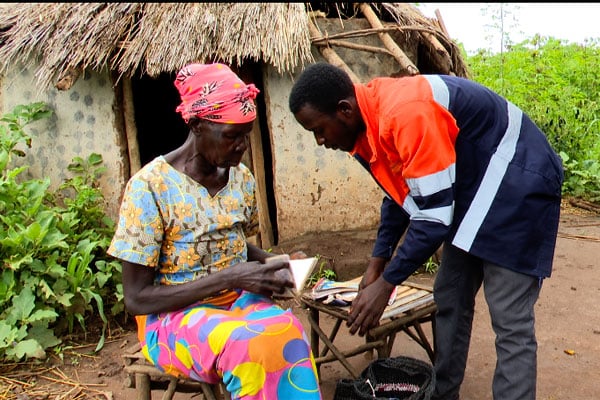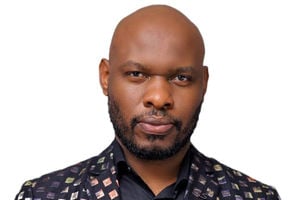Prime
Obote’s memorable speech at Bushenyi on May 27, 1980

Milton Obote in exile
Upon his return on May 27 1980, Obote made a memorable speech at Ishaka in Bushenyi district, western Uganda to a mammoth audience. The speech was also aired live on Radio Uganda. We reproduce part of the speech.
It is more than nine years since I was last among you on the Ugandan soil. I stand humbly before you today in a country ravaged, plundered and divested for over eight years by the brute and monstrous regime of Idi Amin. I am deeply conscious of the untold suffering and misery inflicted on the people of our country by the monster Amin and his henchmen. His attempt to enslave the entire nation, brutalise and torture countless number of our people with the help of traitors, mercenaries and other foreign agents have left scar on our nation which will not be easy to erase.
This rally today is part of victory celebrations by the people of Uganda – and while we celebrate our victory against the forces of evil, we must also at the same time mourn for those who are no longer with us.
We mourn hundreds of thousands of innocent men, women and children who became victims of the regime of terror and destruction. We mourn the gallant sons of Uganda and Tanzania who shed their blood in active combat against the forces of evil and many others who risked and sacrificed their lives in the hope that the people Uganda may in future live in freedom and prosperity.
The liberation of Uganda last year gave us a new lease of life and opportunity to bury our past differences and build a new nation based on unity, peace and prosperity and erect democratic institutions. It afforded us opportunity to rid our nation of tribal and religious frictions which in the past were the main cause of our down fall and led our country into the darkest chapter of its history.
One would have naturally assumed that what happened in Uganda over the past nine years will have taught us a permanent lesson and instilled in our people a new sense of unity and the zeal to closely guard our newly won freedom. However, in just a year since our liberation, opportunism, personal ambition and greed of some of our leaders have once again vent to all petty bickering which in the past contributed with such a vengeance to the fragmentation of our society and enabled Amin to easily gain and consolidate his control of our country and create unprecedented havoc. I call upon all Ugandans to heed the fact that it is only through disunity that such calamities can occur and looking at the state of our country today, recognise how simple it is to undo what takes literally years to build.
Let us also not forget the importance of self-reliance be it for our future prosperity or personal security. For whilst Amin and his bandits were plundering our material resources, desecrating our cultural heritage and carrying out what was tantamount to a genocide in Uganda, the world – except Tanzania, Zambia, Somalia, Botswana and Sudan – just sat by and watched.
Trade
Indeed most of the countries maintained diplomatic relations and some not only carried on trading, but sold to this butcher no doubt at exorbitant prices, weapons and other electronic gadgets to carry out his massacres more efficiently. Near home, the OAU honoured the monster by holding its summit meeting in Kampala in 1975 and appointing him its chairman for a whole year. Similarly, it took more than six years of continuous murders before the Commonwealth felt obliged to condemn the happenings in Uganda at its conference in 1977.
It is ironic that after all the pontifications by the leaders of our so-called civilised world about the horror and atrocities committed by Hitler during the second World war, no leader of any major power felt compelled to put an end to similar atrocities committed by the monster in Uganda in the last quarter of the 20th century.
In the end even when a small Tanzania with meagre resources decided to act and help to restore conscience of the civilised world, it was left to fight and bear the cost on its own. No matter who writes history and where it’s written, the Ugandan tragedy must go down as one of the most shameful events in the recent history of the world.
Fellow countrymen, let us therefore take a vow here and now that never again shall we allow a situation to develop in our country which through disunity would enable any individual or, for that matter a group of people to wrest control of our country, destroy our democratic institutions, plunder our natural resources or tamper with the freedom and personal liberty of our citizens.
Having said what may appear painful to some but what an irrefutable historical fact remains, I do not want anyone to misunderstand and think we are to carry on a vendetta against the world or any country in particular.
We are liberated now and let us proclaim loud and clear that as far as we are concerned the past is now firmly behind us. We harbour no ill-feelings towards any country or organisation – indeed; we take this opportunity to extend the hand of friendship to all nations big or small, rich or poor, powerful or weak.
We extend the hand of friendship to all our neighbours: Kenya, Tanzania, Sudan Zaire and Rwanda. We must pledge and do hereby pledge ourselves to working with all of them either bilaterally or collectively in the spirit of good neighbourliness, respect for each other’s sovereignty and natural understanding and co-operation.
In the same vein we extend the hand of friendship to all the member states of the OAU and the all Non-Aligned countries. We shall stand firmly behind the two bodies, embrace their principles and shall play our part in the advancement of their respective ideas. We extend the hand of friendship to all the Commonwealth countries. We pledge ourselves to remain a true member of the family. We extend the hand of friendship to all the member states of the United Nations.
We affirm that our liberation has helped and, once we stabilise the situation in Uganda, it will improve the security of the nations in part of the world and throughout Africa. We extend the hand of friendship to all people who are still engaged in the liberation of their countries. We consider our own liberation as their liberation and we certainly regard their struggle our struggle and shall give them moral and material assistance to the utmost of our ability.
Lastly, but not least, we extend our hand of friendship to all who are engaged in the field of news media. We look forward to mutual cooperation in reporting the events in our country objectively and sympathetically. We plead with all our neighbours, with members of the OAU, Non-Aligned nations; the Commonwealth countries, the UN member states and the news media and ask them for just one thing: please give us a chance to find our bearings and resolve our problems in our own way.
To all the people of Uganda I fervently urge that we all join hands together in the reconstruction and rehabilitation of our country. We must jointly ensure security in all parts of Uganda. We must work together to remove from our society any semblance of the dastardly killings and fear which has numbed us. The task to provide security for all of us does not rest with the government alone it also rests with all of us collectively and individually. Let us resolve today to report to the authorities anyone in illegal possession of arms and ammunitions. Let us resolve not to harbour any criminal but to report the same to the authorities.
With the war and the rule of terror behind us, we the people of Uganda must wake up to the formidable challenges and daunting tasks which now envelope our society. The greatest of the challenges we have to surmount is the liberation of our minds so that we may be able to see the enemy clearly. The liberation of Uganda from the rule of murder is meaningless unless we embark without delay in combating another arch-enemy namely: poverty, ignorance, and disease.
But first we must eliminate lawlessness from our society. The war of liberation was not fought so that poverty, ignorance and disease should reign supreme in Uganda. The war of liberation was fought so that all people of Uganda – all tribes may live in harmony and in peace and prosperity.
Let us get that firmly in our minds. The war was fought so that all Ugandans irrespective of the tribe or religion may walk tall in their own country and free of any fear of losing their lives or property. The war was fought and won so that the people of Uganda may be able to establish and maintain democratic institutions of their well-being.
I have said that there is an urgent need for all of us to liberate our minds so as to be able to recognise our true enemy. That need is both a challenge and a lesson to all Ugandans. It is a challenge because it is disturbing that after nearly eighteen years of independence there are still many amongst us who do not recognise a Ugandan but a tribesman.
It is a lesson because we all ought to have learnt something from the bitter experience of the Amin era. We all know that when Amin first embarked on his devilish mission to kill citizens of Uganda, he laid emphasis on the necessity to kill soldiers who were from Acholi and Lango. It did not take long to extend his monstrous mission to cover all tribes of Uganda. The lesson is clear: destruction of the whole comes easily when one breaks ranks.
Apollo Milton Obote




